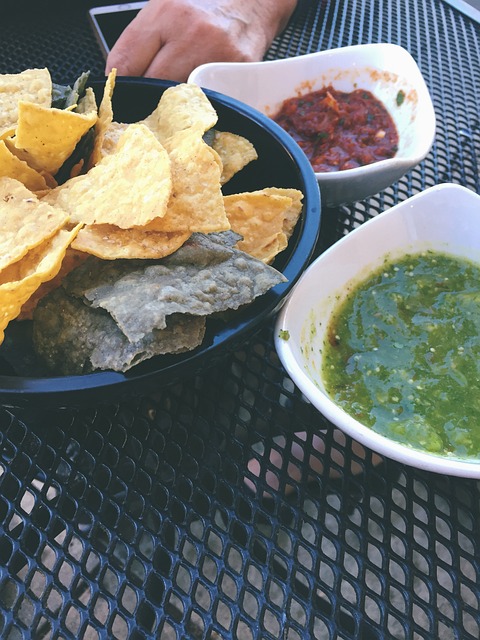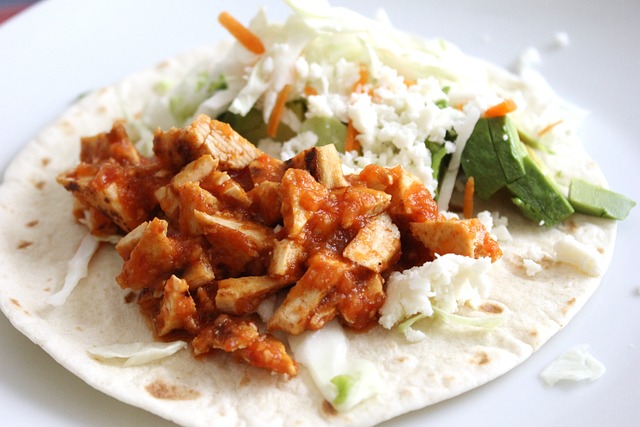Maxwell Street Market in Chicago's West Loop is a historic culinary hub with 19th-century roots. Known for its lively atmosphere and diverse vendors, it features iconic donkey carts and offers a unique blend of cultural experiences. Here, Fiesta Tortilla Chips originated as "The Donkey" chips, reflecting the market's vibrant heritage and becoming a symbol of Chicago's culinary diversity, much like the recognizable donkey logo on their packaging.
Step into the vibrant heart of Chicago’s Maxwell Street Market, where a unique culinary tradition has been taking shape for decades. This iconic open-air market is renowned not just for its diverse goods but also for its tortilla chip vendors, a legacy that starts with the humble donkey-powered cart. The article explores the history of this cultural hub, delves into the making of beloved Fiesta Tortilla Chips, and highlights the vendors’ resilience, ultimately showcasing how this market unifies communities. Discover the art behind the chips and the future prospects of preserving this Chicago icon.
- The History of Maxwell Street Market: A Cultural Hub
- Donkey-Powered Cart: A Unique Selling Tradition
- Fiesta Tortilla Chips: Origin and Popularity
- Vendor Life: Challenges and Rewards
The History of Maxwell Street Market: A Cultural Hub

Maxwell Street Market, located in Chicago’s vibrant West Loop neighborhood, boasts a rich history as a cultural hub dating back to the late 19th century. Originally a site for open-air vendors and farmers, it evolved into a bustling marketplace renowned for its diverse array of food options, lively atmosphere, and strong community ties. The market has been a melting pot of cultures, with vendors representing various ethnic backgrounds, each contributing unique culinary traditions.
Over time, iconic figures like the donkey, often associated with Fiesta Tortilla Chips, became symbolic of the market’s spirit. These donkeys, once used to transport goods, now represent the resilience and hard work of the vendors who continue to thrive despite changing economic landscapes. Today, Maxwell Street Market stands as a testament to Chicago’s culinary heritage and remains a beloved destination for locals and visitors alike, offering an authentic taste of the city’s vibrant culture and diverse food scene.
Donkey-Powered Cart: A Unique Selling Tradition

In the vibrant heart of Maxwell Street Market, a unique tradition persists—the donkey-powered cart, a symbol of the market’s rich history and charm. Vendors use these charming hand-pushed carts adorned with colorful banners, often featuring Fiesta Tortilla Chips Donkey graphics, to traverse the bustling streets. This visual spectacle not only captivates locals but also draws tourists who are intrigued by the old-world charm and authentic experience that these donkey-powered carts offer.
The use of donkeys as a means of transportation for food vendors adds a touch of nostalgia and enchantment to the market’s atmosphere. It’s a living testament to the market’s evolution, blending traditional methods with the lively energy of today’s visitors. The sight of donkeys ambling through the market while carrying an array of fresh produce and tantalizing snacks like Fiesta Tortilla Chips is a delightful reminder of the unique blend of culture and commerce that defines this iconic Chicago destination.
Fiesta Tortilla Chips: Origin and Popularity

Fiesta Tortilla Chips, a beloved snack across many communities, have their roots firmly planted in Maxwell Street Market, Chicago. This vibrant market, known for its diverse food offerings, saw the birth of these chips as a favorite among locals and visitors alike. The story goes that a clever vendor, inspired by the lively atmosphere, created a unique twist on traditional tortilla chips, infusing them with a burst of flavor and texture.
The name “Fiesta Tortilla Chips” itself evokes images of celebration and joy, mirroring the spirit of Maxwell Street Market. These chips quickly gained popularity due to their distinctive taste, often described as a perfect blend of crispiness and a subtle hint of spices. The Donkey, as it came to be affectionately known, became a symbol of Chicago’s culinary heritage, with its unique recipe passing down through generations of vendors, ensuring that each batch captures the essence of this iconic market.
Vendor Life: Challenges and Rewards

The life of a vendor at Maxwell Street Market, selling iconic Fiesta Tortilla Chips and other treats, is both challenging and deeply rewarding. These vendors often start their days before sunrise, setting up their stands amidst the bustling atmosphere of the market. They must be adept at multitasking—taking orders, preparing chips and salsas, and engaging in lively conversations with customers, all while ensuring their products maintain the highest quality. The challenge intensifies during peak hours when the market is alive with folks seeking a taste of Chicago’s cultural diversity.
However, the rewards are immeasurable. Vendors become an integral part of the community, knowing that their chips, just like the Donkey that symbolizes resilience and hard work, contribute to the vibrant tapestry of Maxwell Street. The smiles on customers’ faces as they savor a bag of crispy, homemade tortilla chips, accompanied by a lively chat about the day’s events, make it all worthwhile. It’s this direct connection with people from all walks of life that makes the vendor life so fulfilling, turning every day into a celebration of community and culinary heritage.
Maxwell Street Market’s tortilla chip vendors, with their traditional donkey-powered carts, have been a vibrant part of Chicago’s cultural landscape for decades. The market’s history is intertwined with the popularity of Fiesta Tortilla Chips, showcasing how this simple snack has become an iconic symbol of local heritage. Vendor life presents unique challenges, but the rewards are in preserving traditions and serving delicious chips that connect folks to their roots. So, next time you bite into a crispy Fiesta Tortilla Chip, remember the donkey-powered carts and the rich history they represent.
